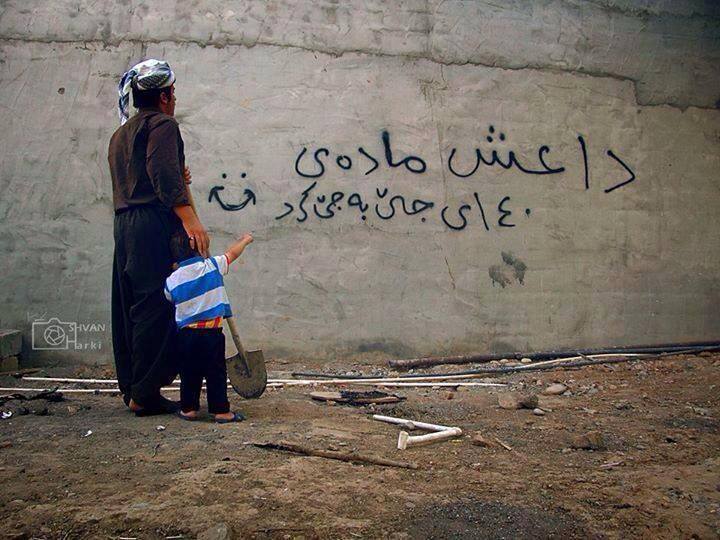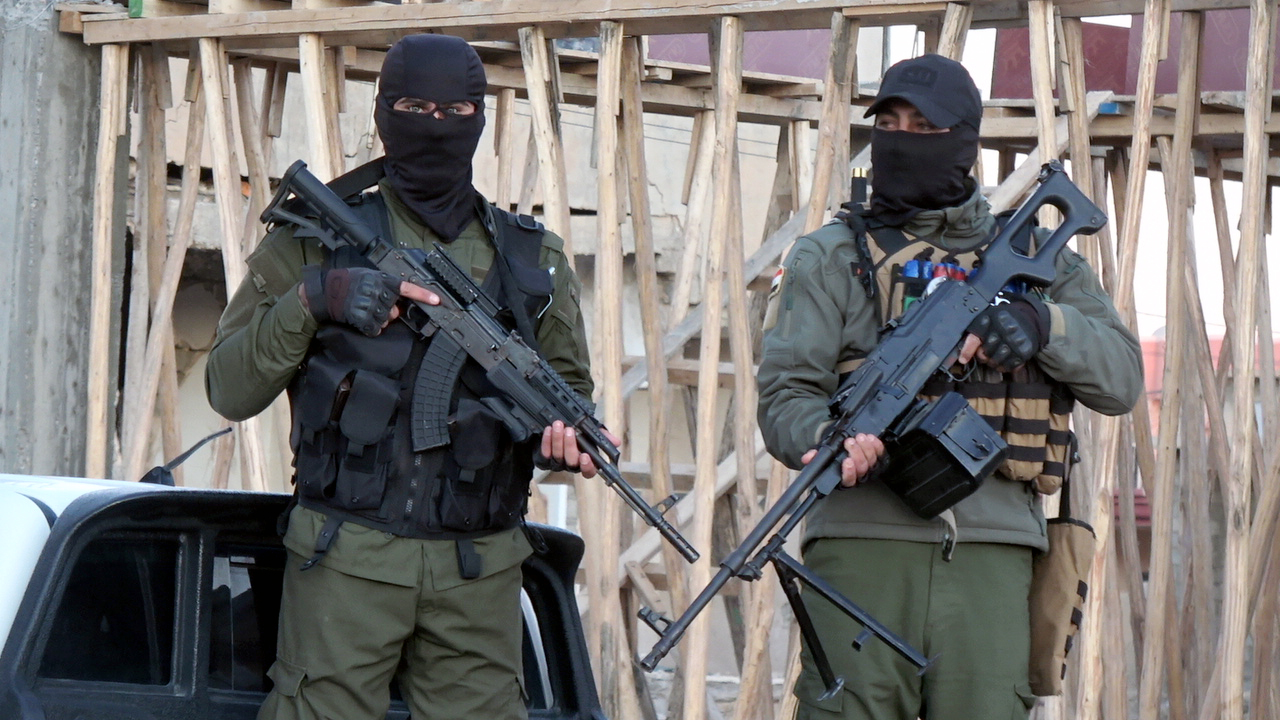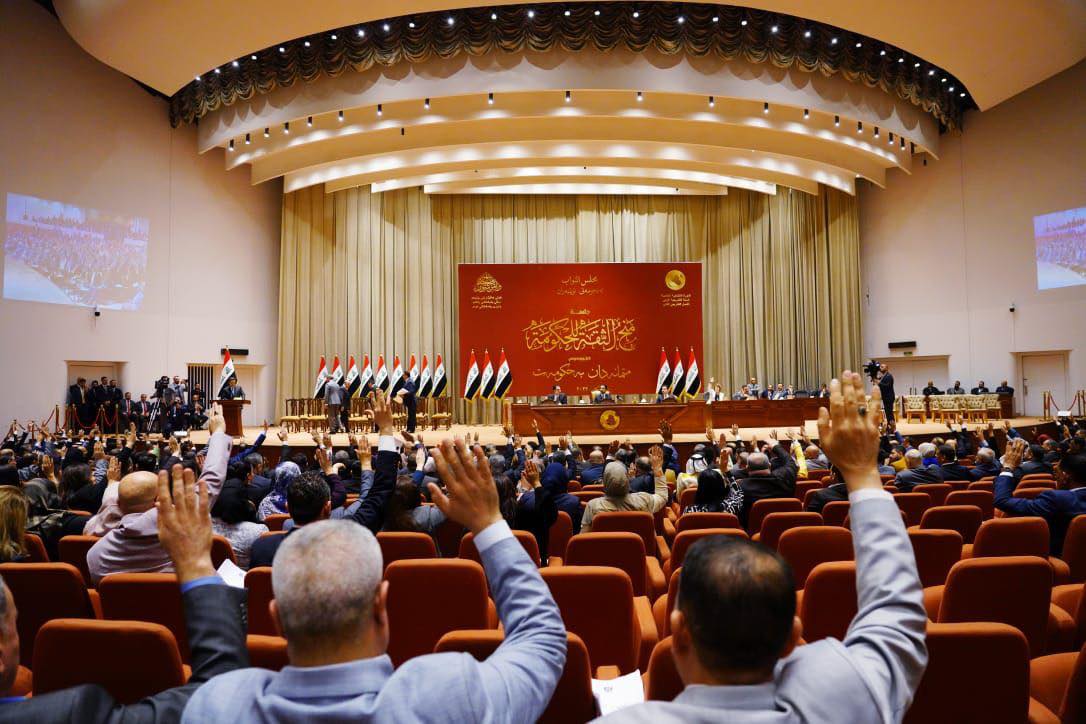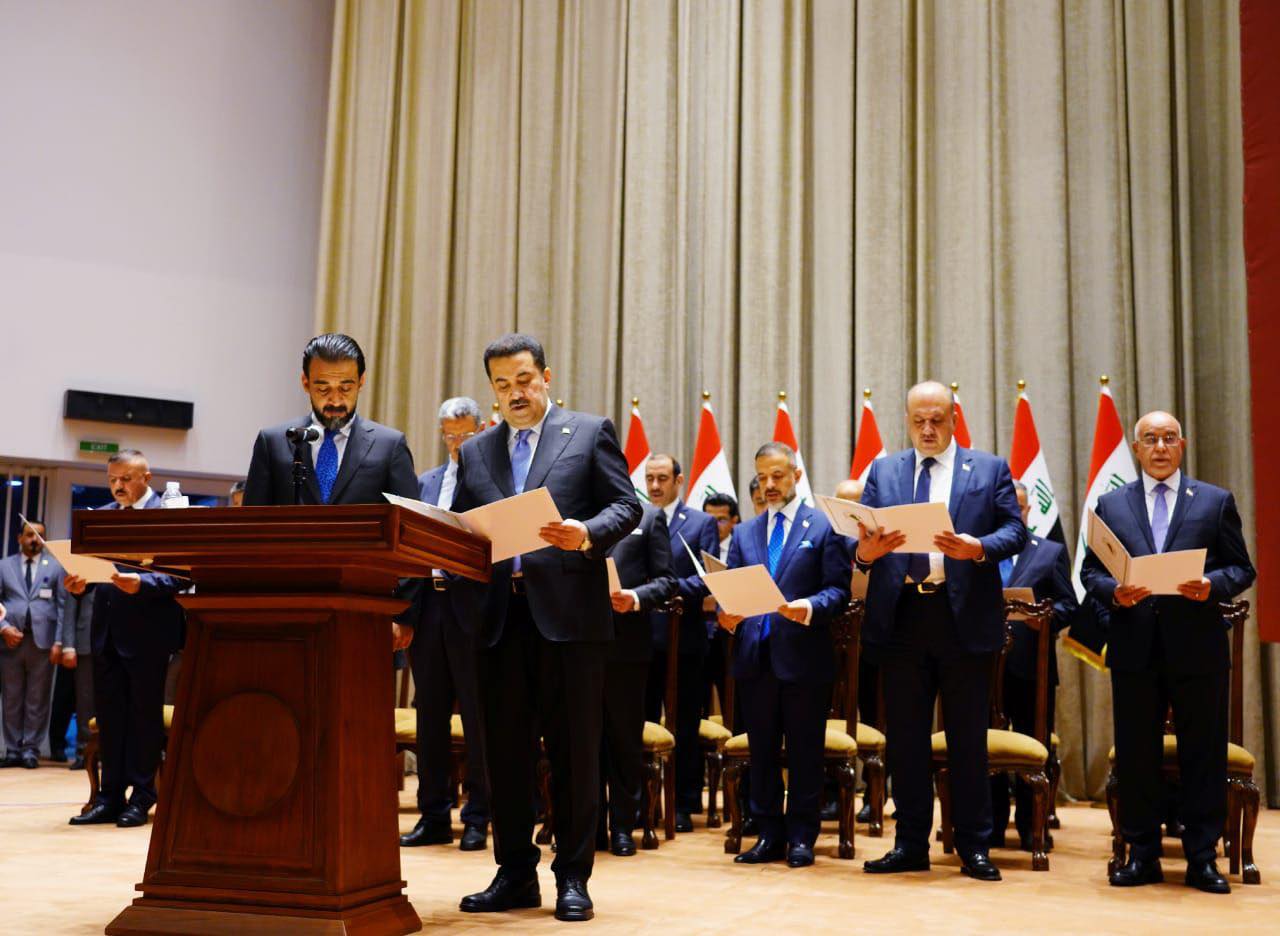The formation of a high committee to implement Article 140 of the constitution about the disputed territories between Baghdad and Erbil, the implementation of the Shingal (Sinjar) agreement, the return of Kurdish parties to the disputed territories and the formation of other forces for the northern, oil-rich city of Kirkuk are on the agenda of the new Iraqi federal government.
The cabinet of the new Prime minister Mohammed Shia Al-Sudani, along with 21 candidates for ministerial posts, was approved by an absolute majority of the Iraqi parliament in a session held in Baghdad on Thursday night in the presence of 253 out of 329 members of the house of representiatives.
Sudani was appointed by Iraqi President Latif Rashid on October 13 as the candidate of the largest faction to form the government, after being appointed to represent the majority of Shiite parties in the framework of coordination.
He was born in 1970 in Maysan southern province. He holds a bachelor's degree in agricultural engineering. He was governor of Maysan province. He won three terms in parliament. He also served as a minister in two governments from 2010 to 2018. His bloc has earned one seat in the house of representatives in October 2021 General Elections and following the boycott of Sadrist lawakers, their seats topped to three.
The disputed territories in the government's program
Several items of the Sudani's cabinet agenda are related to the situation in the disputed territories, including Kirkuk province, based on the preliminary agreement of the Shiite, Sunni Arab and Kurdish political factions, which led to the formation of the new government.
Sudani pledged to restore allocation of 5% of the petrodollar budget to oil-producing provinces which was suspended few years ago due to the economic crisis followed Covid-19 pandemic.
In the Government program, five issues are at the top of the agenda: fighting corruption, unemployment, supporting the poor, reforming various sectors and improving services.
The program is divided into three parts, the main part consists of 23 issues. They include details of plans on Internally Displaced Persons IDP, minorities, areas liberated from ISIS, reconstruction, stability and security, human rights and women, freedom of expression and demonstration, service sectors and resolution of outstanding issues.
In the final part of the Sudani's cabinet agenda, a government agenda paper agreed upon by political factions is included, which the prime minister says is an integral part of the federal government's future agenda.
According to the political agreement, the ministerial program consists of two main themes. They are implementation and legislation, the first of which consists of 29 points, including establishment of a high committee to implement Article 140 and allocate the budget and pay the financial entitlements of those who benefit from this article, within one month after the formation of the government.
Article 140 to resolve the fate of the disputed territories, the implementation committee is inactive and the budget of the article has been suspended or reduced several times in recent years.
The previous Iraqi government, led by Mustafa Kadhimi, did not work on Article 140 of the constitution when it received parliamentary confidence in May 2020.

Another point of the Sudani’s government's program is to spend 5% of the petrodollar budget for oil-producing provinces, which previously, especially Kirkuk, was concerned about the amount of money against the Baghdad government because of the reduction of the budget by half.
Reconstruction of areas liberated from ISIS in Nineveh, Kirkuk, Diyala and Salahaddin, which were severely damaged by the fighting from 2014 to 2017 is another part of Sudani’s agenda.
It is also stated in another point the government works for the return all IDPs to their areas within six months and lift the approval and security checks on the citizens of the liberated areas.
More than a million Iraqis remain displaced – according to the International Organization for Migration IOM – mostly in the Iraqi Kurdistan Region IKR and several IDP camps in Nineveh.
According to the program, all Kurdish parties in Kirkuk, Nineveh, Diyala and Salahaddin have the right to political activities and their taken headquarters to be vacated.
The Kurdish political parties withdrew from the disputed areas after the events of October 16, 2017 and then most of them returned, except the Kurdistan Democratic Party KDP, which demands the handover of its headquarters and the normalization of the situation in Kirkuk.
The Kurdish parties have the right to political activity in Kirkuk, Nineveh, Diyala and Salahaddin
Several other points are related to stabilizing the security gap between the forces of the federal government and those of the Kurdistan Regional Government KRG, with the formation of an emergency regiment of local police and the people of Kirkuk, to take over the security of the province.
There is over 500-kilometers long security gap between the Peshmerga and Iraqi forces in the disputed areas. In the last years, both sides negotiated and formed several joint coordination rooms and agreed to form two joint military brigades, which have not yet been deployed.
Implementation of the Shingal agreement is included in the program, with the aim of stabilizing the district in the Ezidi-dominant region. The agreement was signed in 2020 between Baghdad and Erbil to regulate the issues of administration, security and services, but has not yet been implemented.
They also discussed the investigation to determine the fate of about 10,000 missing people in the disputed territories alone, including the Ezidis and Turkmens enslaved by the extremist militants of ISIS.
Another issue as stated in the government program is Kurdish education posts and offices outside the Kurdistan Region to be funded by the Iraqi ministry of education, a constant demand of Kurdish education teachers, especially in Kirkuk.

The cabinet of Sudani has decided to set up a committee to evaluate the work of acting ministers, directors and governors within six months and take legal action against those involved in corruption.
In Kirkuk and other parts of the disputed territories, dozens of posts have been held by acting governors and directors for five years and have not been filled permanently.
According to the second theme of the ministerial program regarding the political agreement made up of 11 points, the government to take all measures to old elections for the Kirkuk provincial council along with other Iraqi provinces, according to a law in force, in less than a year after the formation of the government.
The Iraqi provincial councils were terminated at the end of 2019 according to the amendment to the provincial council elections law (No. 12 of 2018) by the parliament and no date has been fixed for provincial council elections.
Other points include early elections, amendments to the Federal Court laws, Article 26 of the National Card Law and minorities, and the cancellation of decisions of the Saddam Hussein Revolutionary Leadership Council, some of which relate to the disputed areas, including agricultural lands.
Agricultural lands are one of the most challenges in Kirkuk province and other disputed areas. These issues have not yet been fully resolved and occasionally cause conflict and problems in different areas insce 2003 when the Iraqi regime led by Saddam Hussein was toppled..
The structure of government
In the cabinet of Sudani, voting for two ministries has been postponed and so far 21 ministers have been appointed and given confidence, some of them in the disputed territories and three women have received ministerial posts.
Kirkuk has two ministers, Nineveh two ministers, Diyala and Salahaddin one minister.
Mohammed Ali Tamim, leader of the Taqadum party, led by Speaker Mohammed Halbusi, received confidence as deputy prime minister and planning minister.
Tamim, 48, a Sunni Arab from Hawija district of Kirkuk province, holds a doctorate in international relations. He was the minister of education in 2010. He was elected to the first, third, fourth and fifth sessions of the Iraqi parliament.
The Iraqi Ministry of Justice went to Khalid Salam Shuani as the candidate of the Patriotic Union of Kurdistan PUK.
Shuwani, 47, from Kirkuk, holds a doctorate in law. His last post was the Kurdistan Regional Government's minister for negotiations with Baghdad. He served as lawmaker in two sessions and worked as adviser to the Iraqi president Fouad Massoum.

The Turkmen community has received one ministry and is trying to get another. For the first time, one of their candidates became defense minister, Sabbath Abbasi, 59, from Nineveh, who holds a bachelor's degree in military science and has served two terms in parliament.
Ahmad Fakak, 61, who holds a doctorate in political history and has previously held several positions, including minister of higher education, has a number of books of poetry and stories, has been appointed as minister of culture.
Ivan Yakub Jaber, a Christian, who resigned from the previous cabinet until the parliamentary elections, was re-elected as the youngest minister in the new cabinet.
Taif Sami, born in 1963 in Baghdad, has been the deputy minister of finance since 2019. She holds a bachelor's degree in administration and economics and was director of the budget office at the Ministry of Finance.
The Ministry of Communications was filled by Ayan Aboud. Born in 1967 in Baghdad, she holds a doctorate in communications engineering and has previously held several positions, including advisor to the minister of communications from 2007 up to 2021.





